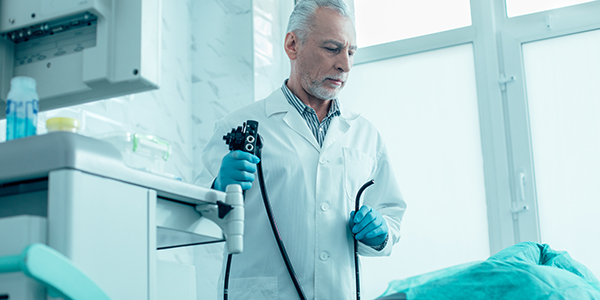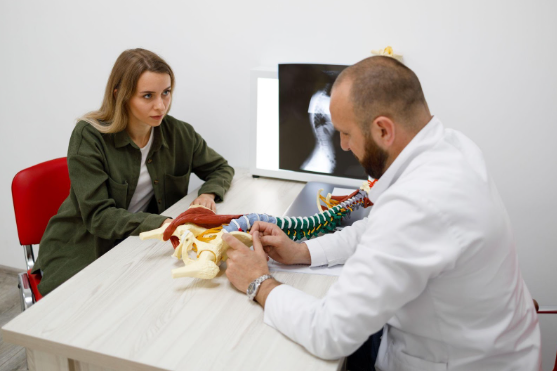Expert Insights into Sigmoidoscopy Exam
Gain valuable knowledge about the sigmoidoscopy exam at Vanguard Gastroenterology Clinic in New York, NY. Our team of experienced gastroenterologists provides in-depth insights and analysis into this essential diagnostic procedure, ensuring a thorough understanding of the examination process and its significance for your digestive health.

At Vanguard Gastroenterology Clinic, our Sigmoidoscopy Exam service offers a comprehensive and valuable diagnostic tool to assess the health of your lower gastrointestinal tract. Our team of skilled gastroenterologists utilizes state-of-the-art equipment and expert knowledge to perform this examination, providing you with precise insights into your digestive health.
Understanding the Sigmoidoscopy Exam
A sigmoidoscopy is a minimally invasive procedure that allows a gastroenterologist to examine the rectum and the lower part of the colon (sigmoid colon). During the procedure, a sigmoidoscope, a thin, flexible tube with a light and camera at the end, is gently inserted into the rectum to visualize the lining of the colon. The procedure provides valuable information about potential issues such as inflammation, polyps, or early signs of colorectal cancer.
The Importance of the Sigmoidoscopy Exam
The sigmoidoscopy exam plays a critical role in the early detection and prevention of gastrointestinal conditions, particularly in the lower part of the colon. By identifying abnormalities, such as polyps, during the sigmoidoscopy, your gastroenterologist can take proactive measures to address any potential concerns, ultimately promoting your digestive health and overall well-being. If polyps are found during the sigmoidoscopy, a follow-up screening colonoscopy may be recommended for further evaluation.
Expert Guidance and Care
At Vanguard Gastroenterology Clinic, our expert team of gastroenterologists is highly skilled in performing sigmoidoscopy exams with precision and care. We prioritize your comfort and safety throughout the process, ensuring that you have a positive experience during the examination.
What to Expect During the Sigmoidoscopy Exam
Before the procedure, your gastroenterologist will explain the details of the sigmoidoscopy exam and answer any questions you may have. In most cases, sedation is not required for this procedure. The sigmoidoscope is gently inserted into the rectum, allowing the gastroenterologist to examine the lower part of the colon for any abnormalities.
Post-Procedure Care
After the sigmoidoscopy exam, you can usually resume your regular activities with little to no downtime. Your gastroenterologist will discuss any findings with you and recommend any necessary follow-up care or additional testing if required.
Taking Control of Your Digestive Health
A sigmoidoscopy exam is a valuable diagnostic procedure that provides critical information about your lower gastrointestinal health. If you have concerns about your digestive well-being or require a thorough assessment, schedule a consultation at Vanguard Gastroenterology Clinic. Our team of experts is dedicated to providing you with personalized care and expert insights to support your digestive health journey.
Frequently Asked Questions (FAQs)
How is the sigmoidoscopy exam different from a colonoscopy?
Both sigmoidoscopy and colonoscopy are diagnostic procedures used to assess the colon and rectum. However, sigmoidoscopy focuses on the lower part of the colon (sigmoid colon), while colonoscopy examines the entire colon.
Is sedation required for a sigmoidoscopy exam?
In most cases, sedation is not required for a sigmoidoscopy exam. The procedure is typically well-tolerated, and patients may only experience minor discomfort.
How long does a sigmoidoscopy exam take?
The duration of the sigmoidoscopy exam is relatively short, typically ranging from 10 to 20 minutes.
Is there any special preparation for a sigmoidoscopy exam?
Yes, some preparation is required before a sigmoidoscopy exam. Your gastroenterologist will provide specific instructions on dietary restrictions and bowel preparation to ensure a clear view of the lower gastrointestinal tract during the examination.
Does the sigmoidoscopy exam detect colorectal cancer?
While a sigmoidoscopy exam can detect abnormalities and early signs of colorectal cancer in the lower part of the colon, it does not assess the entire colon. A full colonoscopy is necessary for a comprehensive evaluation.
Are there any risks associated with the sigmoidoscopy exam?
Sigmoidoscopy is generally considered safe. However, there is a slight risk of bleeding or perforation (tear) of the colon. Your gastroenterologist will discuss these risks with you before the procedure.
What can I expect after the sigmoidoscopy exam?
After the sigmoidoscopy exam, most patients can resume their regular activities with little to no downtime. You may experience mild bloating or gas, which typically subsides shortly after the procedure.


